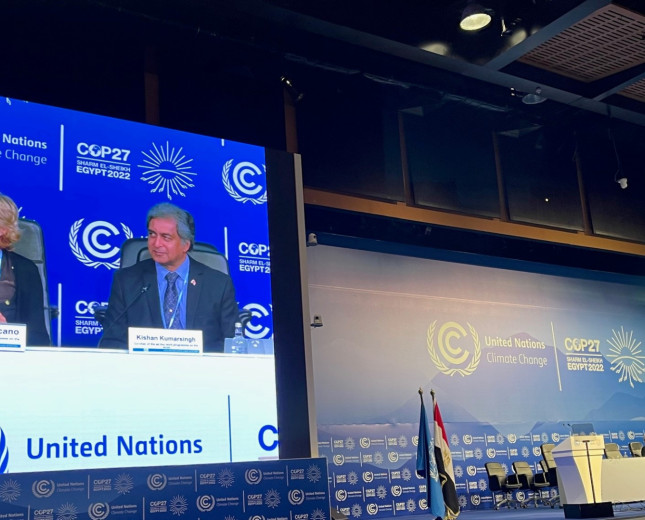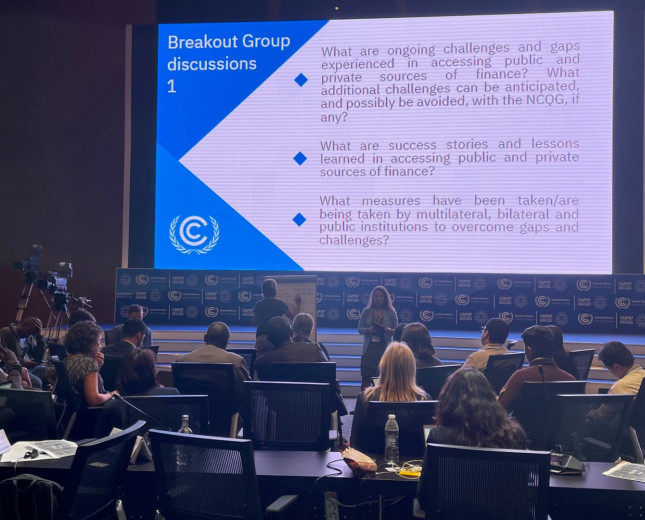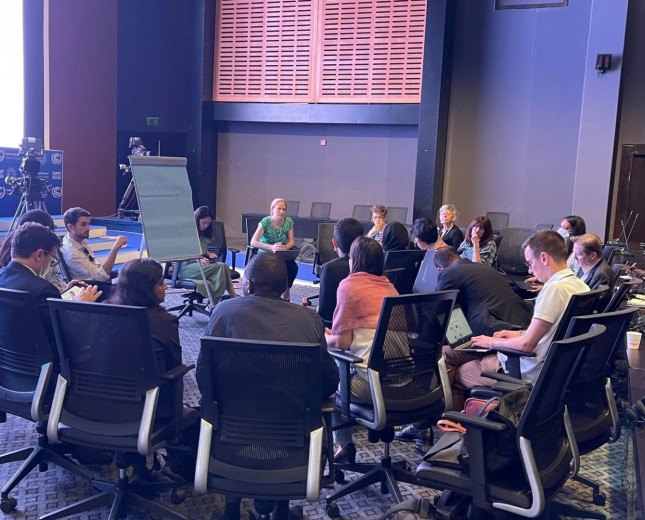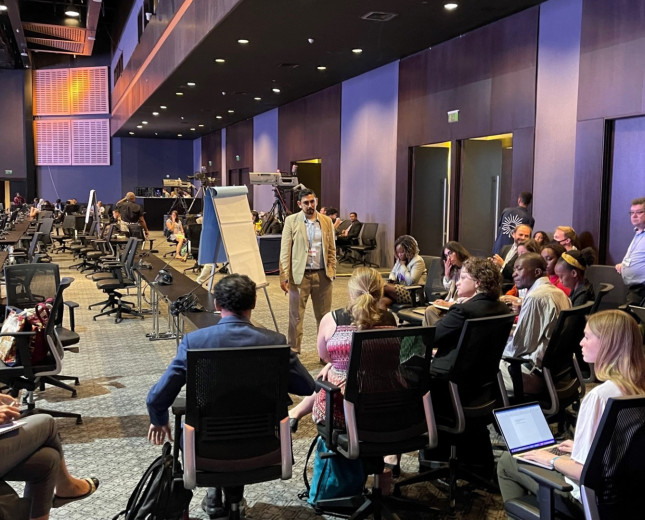| 09:00 – 09:30 |
Welcoming remarks and introduction of the fourth technical expert dialogue |
Welcome remarks
-
Daniele Violetti, UNFCCC secretariat
-
Mohamed Nasr, Lead Negotiator of the Presidency of COP 27, CMP 17 and CMA 4
Introduction, overview and expectations of the fourth technical expert dialogue
Federica Fricano and Kishan Kumarsingh, Co-chairs of the ad hoc work programme on the NCQG
|
| 09:30 – 11:30 |
Session 1: Experiences, lessons learned and solutions for enhanced access to climate finance
This session will provide the opportunity to share experiences in accessing or facilitating access to climate finance, drawing upon challenges, solutions and lessons learned. It will also feature success stories by developing countries in accessing climate finance, as well as examples of measures taken by financial institutions and solutions to facilitate enhanced access.
|
Expert input roundtable discussion
Group 1: Access to multilateral sources of finance
- Dirk Snyman, The Pacific Community
- Lauren Walshe-Roussel, Canada
- Juan Hoffmaister, Green Climate Fund
- Esmyra Javier, Asian Development Bank
- Jahan-Zeb Chowdhury, International Fund for Agricultural Development
- Liane Schalatek, Heinrich Böll Foundation
Open discussions
Moderator: Stephen Hammer,bio World Bank
|
Expert input roundtable discussion
Group 2: Access to bilateral sources of finance
- Fathimath Nashwa, Maldives
- Raju Pandit Chhetri, Nepal
- Matthias Bachmann, Swiss Agency for Development and Cooperation
- Mattias Frumerie, Sweden (virtually)
Open discussions
Moderator: Zaheer Fakir,bio South Africa
|
Expert input roundtable discussion
Group 3: Access to private sources of finance
- Maria Del Pilar Restrepo Orjuela, Colombia
- Shahir Zaki, National Bank of Egypt (virtually)
- James Birch, Gates Foundation (virtually)
- Fazle Rabbi Sadeque Ahmed, Palli Karma-Sahayak Foundation Bangladesh
Open discussions
Moderator: Sonia Dunlop,bio E3G
|
| 11:45 – 13:15 |
Moderated break-out group discussion
Participants will be invited to discuss the following issues:
- What are ongoing challenges and gaps experienced in accessing public and private sources of finance? What additional challenges can be anticipated, and possibly be avoided, with the NCQG, if any?
- What are success stories and lessons learned in accessing public and private sources of finance?
- What measures have been taken/are being taken by multilateral, bilateral and public institutions to overcome gaps and challenges?
|
In person moderators
Virtual moderators
|
| 15:00 – 15:30 |
Session 2: Access to climate finance in the context of the NCQG
This session will discuss how the NCQG process can facilitate enhanced access to all sources of finance. It will showcase success stories, ideas and proposals for unlocking challenges experienced by public and private actors, particularly from developing countries, in accessing climate finance and reflect on proposals of how the NCQG process can contribute to enhanced access. It will also reflect on possible solutions for additional challenges anticipated with the setting of the NCQG.
|
Scene-setting presentation
Mahlet Eyassu Melkie,bio Climate Access Network and RMI
Open discussions
Moderator: David McCauley, Senior Climate Finance Consultant
|



